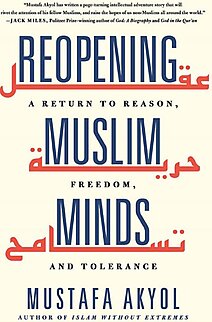The Western public has become accustomed to hearing certain kinds of unsettling news from parts of the Muslim world. Pakistani Islamists hunt some innocent person for “blasphemy.” The Iranian regime makes a Christian convert rot in jail for “apostasy.” Saudi Arabia gives brutal corporal punishments to liberal activists, whose only “crime” is to offend God—or at least those who rule in His name.
All these laws look oppressive to most non-Muslims. Many Muslims feel the same way, which is why many prefer secular governments, keeping their faith personal and communal. Some call for a major reform within Islam. A small but growing minority, who lose all faith, become ex-Muslims.
Yet for zealous guardians of the Sharia, or Islamic law, modern responses to such verdicts carry no weight. They believe that a much higher authority, God, is on their side, somehow never doubting whether they are on His side. Calls for reform make them even more defiant, since they are only able to see the opinions of outsiders as whims and seductions.
As a Muslim who has been engaging with these issues for more than two decades, I have sadly observed the growing ethical gap between rigid, Sharia-minded conservatives and the modern world. I have also come to realize that this deadlock won’t be overcome by endlessly wrestling over what exactly the Qur’an or the Prophet Muhammad said on this or that matter. Such discussions about the textual sources of the Sharia are important, but there is an even more important layer that lies beneath. This is kalam, or Islamic theology, and especially a mostly forgotten dispute in that theology over the meaning of husn and qubh, literally, “beauty” and “ugliness,” or “good” and “bad.”
Muslims began to discuss this matter in the 8th century, a century after the Prophet, as they were trying to make sense of their faith and the empire they were establishing in its name. All agreed that God commands what is good, such as helping a person in need, and prohibits what is bad, such as murder. But a puzzling question soon arose: Does God command or prohibit things because they are inherently good and bad? Or are things good and bad simply because God decreed so?
Students of Western philosophy may find the question familiar, because the first person to pose it was the Greek philosopher Socrates, in his famous dialogue with Euthyphro. The question became known as the Euthyphro dilemma, and it presented two options to any theology.
The first is “ethical objectivism,” meaning that God’s commandments are based on objective ethical principles that we humans can understand. The second is “divine command theory,” meaning that God commands whatever He wills and ethical principles follow His will, not the other way around.

In early Islam, ethical objectivism was championed first by the theological school called the Mu’tazilites and later by Aristotelian philosophers such as Ibn Rushd (d. 1198), also known as Averroes. In their view, the Sharia indicated ethical values that could be known by humans through reason and conscience. When there was a conflict between ethical values and the Sharia, the latter could be reinterpreted.
In contrast, divine command theory was championed by the theological school called the Ash’arites. They believed that acts are good or bad simply because God says so. “Lying is wrong, since [God] declares it to be wrong,” declared the founder of the school, al-Ash’ari (d. 936). “[But] if He were to command it, there would be no argument to the contrary.” In this view, the Sharia constituted ethical values, which otherwise would not even exist. There was not much room to reinterpret the Sharia, because there was no measure of good and bad outside of it.
he war of ideas between these two camps went on for a few centuries. Ash’arism acquired some refinements and was also joined by a more nuanced Sunni theology called Maturidism, which remained peripheral. By the 12th century, Ash’arism had won the day in Sunni Islam, and its divine command theory became the dominant religious mind-set.
Was this victory because Ash’arism was more true to the heart of Islam, the Qur’an? Not really, because the Qur’an offers a stronger basis for ethical objectivism. It often simply commands believers to act justly, without further explanation, implying that people have an innate sense of it. It also speaks of goodness as ma’ruf, or “the known”—known by reason, not necessarily by revelation.
The real advantage of Ash’arism was in something else: Its usefulness to the despotic rulers who dominated medieval Islam. Unlike the Mu’tazila, who were skeptical of power, the Ash’arites sang the praises of “obedience to the rulers.” Unsurprisingly, the rulers upheld them, forming an alliance between the state and religious scholars that political scientist Ahmet Kuru highlights in his notable 2019 book, “Islam, Authoritarianism and Underdevelopment.”
Ash’arism’s grip on Islam was criticized decades ago by the prominent Pakistani scholar Fazlurrahman Malik, whose liberal reformist views were condemned by militants in his country. “The standard dogma of Sunni theology,” he observed, rested on “a patent denial of faith in the intellectual and moral powers of man.” Humans were considered “incapable of knowing anything true or doing anything good without being commanded on authority.” The consequence was an insular worldview and a literalist jurisprudence that “did not allow further growth and development.”
Yet the world has grown and developed in the past few centuries. Modernity brought new thinking not just about science and technology but also about ethical values such as freedom of conscience and equality before the law. Could Muslims accept these insights?
An interesting test case was the Muslim reaction to the greatest moral progress in modern history, the abolition of slavery. When the idea, and the pressure, came to the Muslim world from Britain in the mid-19th century, Islamic liberals embraced it and even found inspiration in the Qur’an’s moral call for “freeing a neck.” But Islamic traditionalists strongly objected. First, because no moral wisdom could ever come from the infidels. Second, because the Sharia, which had mitigated but also justified slavery, could never change. No wonder slavery legally continued in Saudi Arabia until 1962 and in Mauritania until 1981.
It is worth noting that Western powers such as Britain came to Muslims with humane ideals such as abolition but also with inhumane agendas such as colonialism. They even used ideals as a pretext for colonialism. As many Muslims remember today, France brutalized Algeria for 130 years while claiming to “civilize” it. This grim history has been a big part of the problem. Yet there is also the other side of the coin: Islamists have used anti-colonialism as their own pretext for rejecting modern standards of human rights and justifying their own brutalities.
The way forward for Islamic thought lies in revisiting the Islamic Euthyphro dilemma and correcting a wrong theological turn taken almost a millennium ago. Only then can Islamic civilization again embrace universalism, which was the secret of its long Golden Age from the 8th to the 13th centuries. With the help of reason, the Sharia can be interpreted to support humanity’s perennial quest for freedom and justice—as I believe it was meant to do—instead of being used as a bulwark against them.

Featured Book
Reopening Muslim Minds: A Return to Reason, Freedom, and Tolerance
Elucidating complex ideas with engaging prose and storytelling, Reopening Muslim Minds borrows lost visions from medieval Muslim thinkers such as Ibn Rushd (aka Averroes) to offer a new Muslim worldview on a range of sensitive issues: human rights, equality for women, freedom of religion, or freedom from religion. While frankly acknowledging the problems in the world of Islam today, author Mustafa Akyol offers a clear and hopeful vision for its future.
